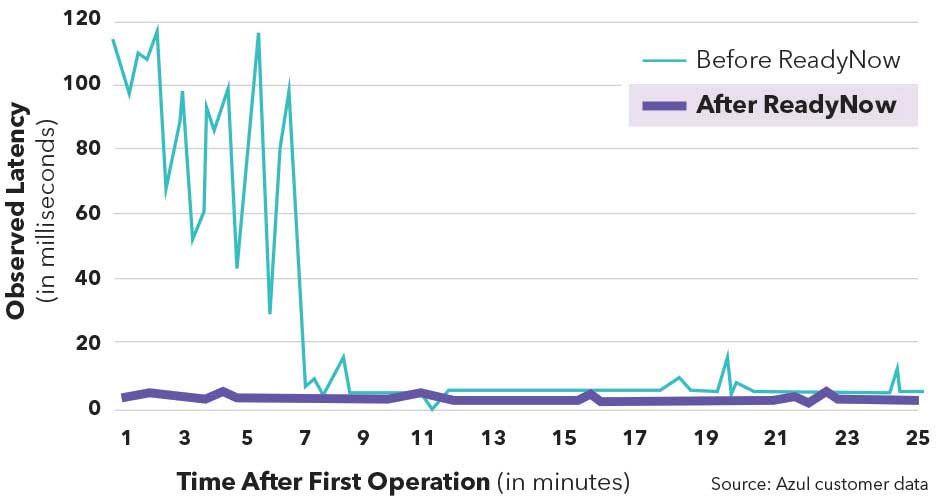For modern applications running in container, elastic, auto-scaling cloud environments with contemporary DevOps practices

Java-based systems deliver great performance when running compiled and optimized code. However, the JVM needs time to “warm up”, or optimize frequently-used code, so the application can run at top speed from the start.
Slash Warmup Times, Simplify Operations, and Optimize Cloud Costs
ReadyNow Orchestrator makes ReadyNow more operationally efficient. Ensures consistent responsiveness and performance even as instances are brought up and down, and during critical times like a retail rush, start of the gaming day or market open.
ReadyNow is ideal for market-facing systems challenged by warm-up issues. Contact Azul to learn how ReadyNow can accelerate your operations at market open and deliver predictable, low-latency performance when you need it most.